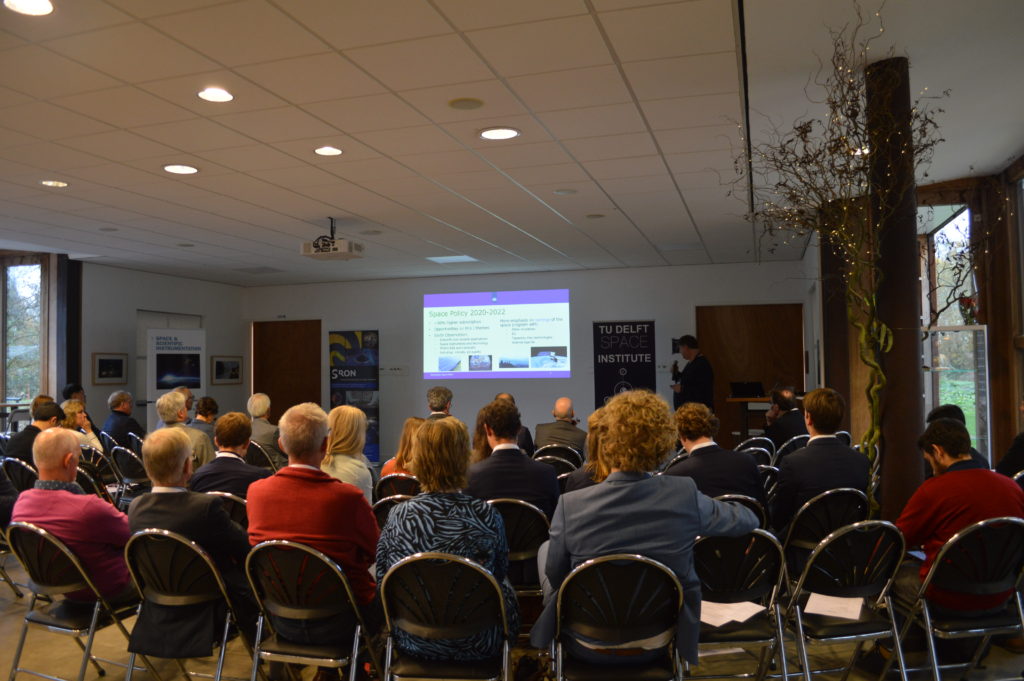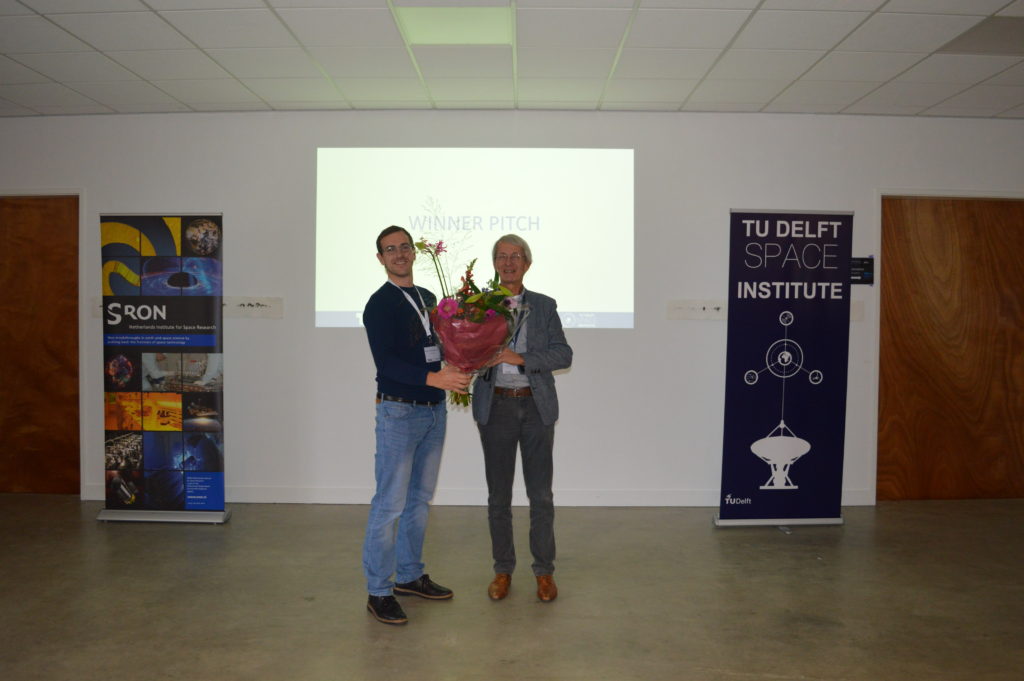Around 80 people joined the 2019 edition of the DSI-TNO-SRON ‘innovate your Space’ symposium, including experts from the space industry, knowledge institutes, government and academia. The symposium was a success with fruitful discussions, interesting keynotes, pitches and workshops related to this year’s topic ‘Innovation for Climate and Air Quality Monitoring’.
The symposium started with a warm welcome by the hosts of the Symposium Eberhard Gill, Director at TU-Delft Space Institute, Kees Buijsrogge, Director Space & Scientific Instrumentation at TNO and Avri Selig, Head of Earth Observation Programme at SRON. Subsequently the symposium topic “Innovation for Climate and Air Quality Monitoring” was introduced by the chairman of the day Gerard Blaauw, Director/Owner of Blaauw Space Affairs.

The first of the four symposium keynotes was given by Pieternel Levelt, head of the Climate Observations Department at Royal Netherlands Meteorological Institute (KNMI) and professor at Delft University of Technology. Levelt outlined the major research questions in the atmospheric climate domain, to what extent they play a role in air quality and climate policy, and the usefulness of satellite measurements for both research and climate policy now and in the future.
The keynote of Levelt was followed by a first pitch round in which three PhD’s/PostDocs presented their research. The pitch ‘Clouds Blowing in the Wind’ by Mariska Koning showed the way how clouds modify winds and vice versa. The research pitched by Gourav Mahapatra was focused towards a better understanding of Venus climate by probing cloud and haze properties. Christos Gatidis finished the first symposium pitch round by pitching his research ‘Small-scale variability in rainfall and its effect on precipitation estimates from space’.
After a short coffee break our second keynote speaker Han Dolman, professor at VU University Amsterdam, Department of Earth Sciences, spoke about the Paris Climate Agreement and satellite remote sensing of Geenhouse gases.
Straight after the keynote of Dolman the second pitch round took place. Inger Bij de Vaate elaborated on how to use SAR altimetry to derive water levels in the Arctic. Marcel Kleinherenbrink pitched his research ‘The Harmony mission: a new window to study climate-driven processes’. And last but not least, Weiran Li pitched his research about remote sensing of firn properties in Greenland and Antarctica.
The well-cared for lunch by the Art Centre was followed by the announcement of the winner of the pitches, Marcel Kleinheerenbrink. He received an award to attend a conference of his choice.

While in the morning the focus of the keynotes was on scientific challenges of the symposium topic, the afternoon shed light onto the governmental and industrial perspectives by keynotes given by Radboud Koop, Science Coordinator at Netherlands Space Office and Sytze Kampen, Head of Technology at Airbus Defence and Space.
Radboud Koop discussed the Space policy 2020-2022, supporting space technology developments in order to optimally benefit from the growth of the global market, the growth of the use of satellite data-based services and a stronger synergy and cooperation between governments. Sytze Kampen highlighted the challenge of building a true industrial capability, gearing towards recurring production at lower cost and creating portfolios of attractive commercial services. Furthermore, he emphasized the importance of a continued participation of the Netherlands in the relevant European Space programs in order to stand out from global competition.
The keynotes were followed by three interactive workshops:
- NWO (TTW-Perspective) Space Optics led by Eberhard Gill
- NWO (TTW-Perspective) OLFAR
(Space Based Radio Astronomy) led by Marc Klein Wolt (assistant professor Radboud University/managing director Radboud Radio Lab) - Innovation for Climate and Air Quality Monitoring
(How to hormonize (early) technology development and user needs) led by Avri Selig
At the end of the symposium the Delft Art Centre arranged for drinks which offered great opportunities for networking. We want to thank all participants for their enthusiasm and sharing of their knowledge during the symposium and we hope to see you all next year!